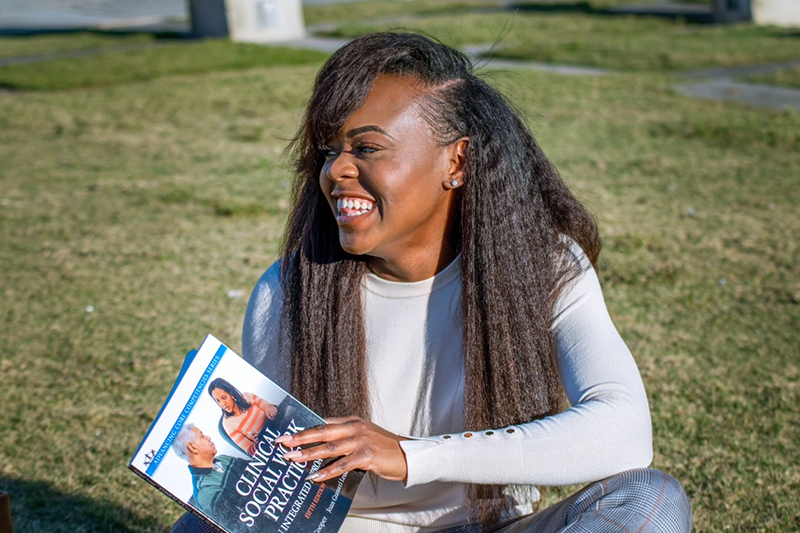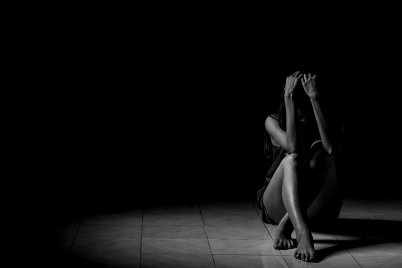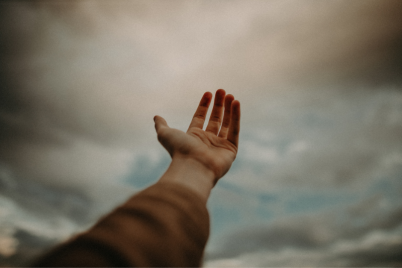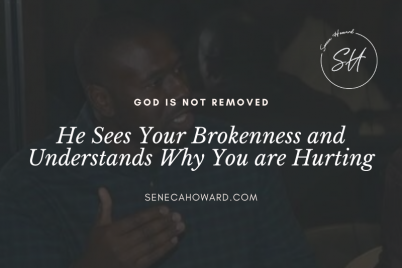Dr. Brittany Peters, LCSW, MCAP, QS
By Dr. Brittany Peters, LCSW, MCAP, QS
Strong, black, and living in survival mode—many of us have withstood the ultimate test of time, barely making it out with our own lives. Many of us constantly search for the words to describe the pain associated with our black experience.
African-American poet Ntozake Shange wrote in “For Colored Girls Who Considered Suicide when the Rainbow Is Enuf” described it this way: “Somebody almost walked off wid alla my stuff!” Rapper J. Cole framed it as, “Somethings got a hold on me.”
That something is trauma. Trauma shows up uninvited at multiple times throughout our lives. Trauma brings abuse, neglect, substance misuse, intimate partner violence and sexual abuse to name a few. Trauma does not care what time or where you are in your life: childhood, middle of the night, or during your marriage. Science has proven what we in the black community have known for years — trauma can trap you.
Trauma can trap us in unproductive behavior patterns, unhealthy relationships, chronic health problems, and counterproductive thinking patterns. Trauma alters our bodies and lives in various ways. Physiologically, it leaves some of us with high blood pressure. Interpersonally, it leaves many of us emotionally numb.
When Ntozake Shange said, “Somebody almost walked off wid alla my stuff,” she meant “walked off” with our laughs, our smiles, our compassion for others, and our compassion for ourselves.
It’s no wonder many of us are living in survival mode, on edge, ready to fight, ready to retreat, ready to, as rapper Lil Boosie stated, “set this b**** off.”
Despite all the knowledge and treatments available for individuals who have survived trauma, minorities, particularly black and brown people, underutilize behavioral health services. Additionally, black and brown people are underserved and face barriers to treatment, such as stigma, accessibility, and limited therapists who truly understand the black experience.
Part of our responsibility as a community is to no longer find comfort in simply surviving. Surviving through a traumatic childhood or traumatic experience is not always an indicator of resilience. Witness the many causes of death in Pinellas county, where the rates are high for black and brown deaths, new incidences of HIV, low birth weight, and infant deaths.
The strength of our community is that we possess the capacity to build structures that promote resiliency in a way that acknowledges our trauma and encourages the use of health-care providers to address the impact trauma has on our bodies.
Accessing medical care annually, talking about our experiences, being open to medication when necessary, and seeing a therapist are essential to building true resiliency in our community so that we can be strong, black, and healed.
Dr. Brittany Peters is a licensed clinical social work, carrying a certification in addictions. She works as a consultant in addition to teaching for the University of Florida and Walden University. She volunteers her time though the Urban League Young Professionals, League of Women Voters and the Tampa Bay Association of Social workers.








